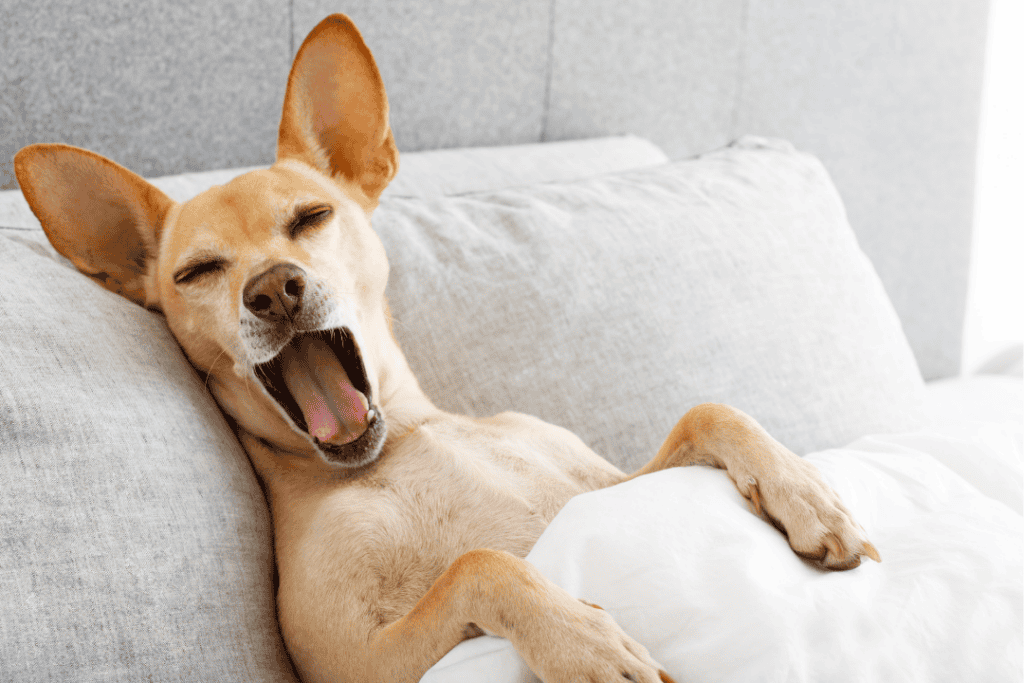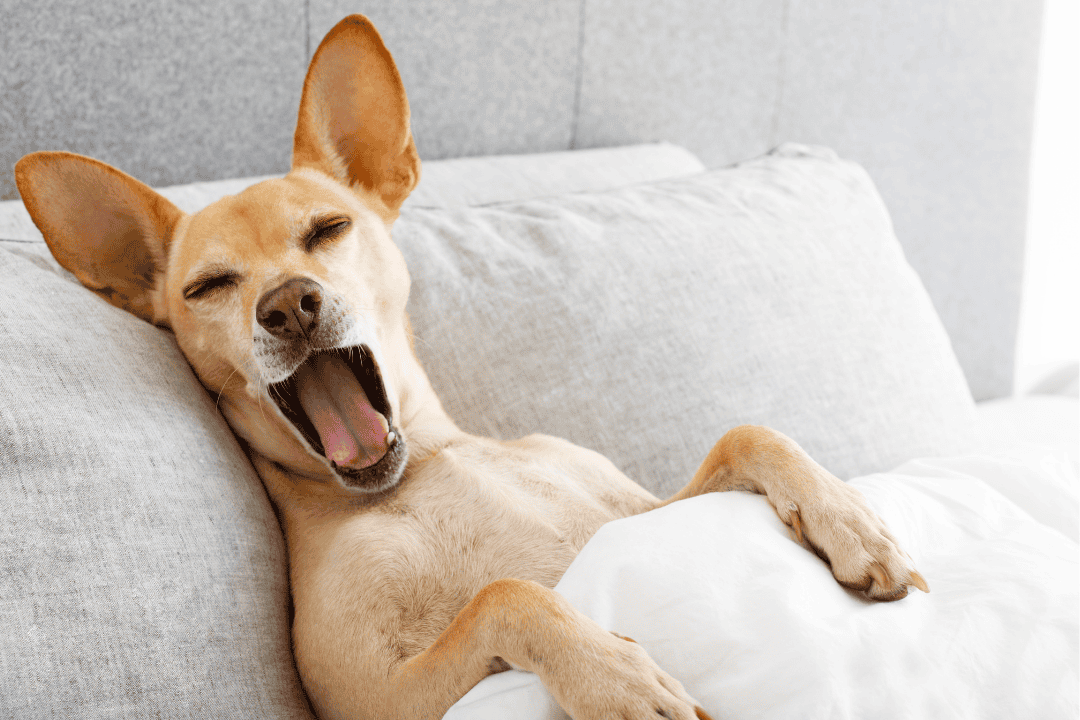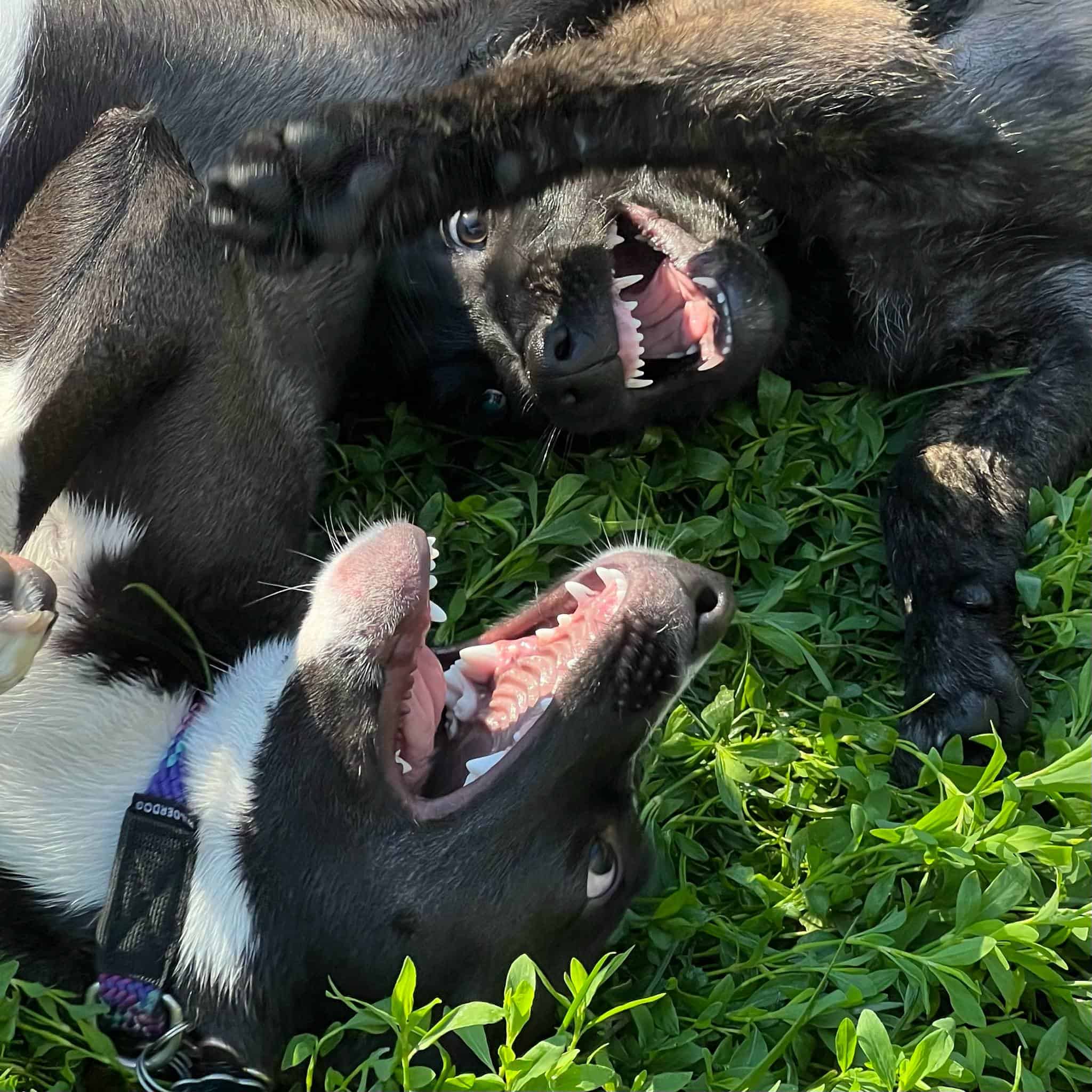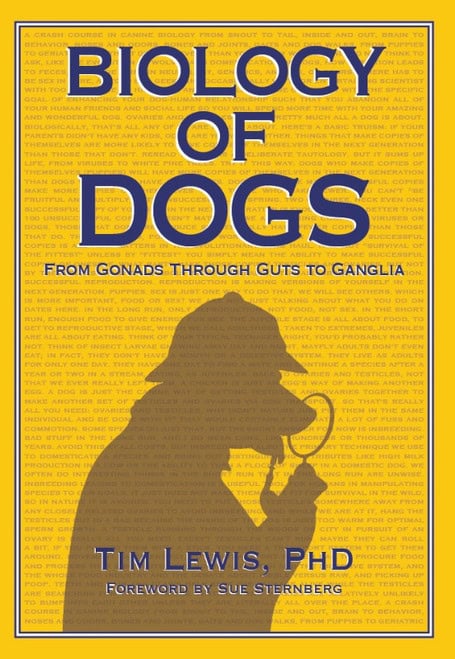
Sleep Facts
The sleeping habits of dogs are as fascinating as they are adorable! Whether you have an adult dog or a puppy sleep is a vital and integral necessity for owning a well mannered dog. Think of moments when you’ve been tired. It’s hard to focus, make good decisions, and if you go on long enough your body will literally just stop working.
When working with our clients, amount of sleep and quality of sleep is a topic that arises early. It’s important to ensure that your dog is getting adequate rest that allows them to be the best versions of themselves possible. Here are some interesting thing tidbits about dogs and their sleep habits.
Dogs do Dream
Like us, dogs experience cycles of sleep. Most of your dog’s sleep occurs in the form of Short wave sleep. They’re not entirely out of touch with the world around them. If you move, they’ll probably be alert. Deeper REM sleep is required for dreaming. REM means Rapid Eye Movement and the brain uses this process to organize and store learning and memories. This stage includes profound relaxation and the brain essentially tunes out the outside world. That twitching paw and whining? Dogs experience vivid dreams like humans do so they’re probably chasing squirrels in dreamland!
Sleep Styles
Some dogs curl up tight for warmth, while others sprawl out to cool off. Their sleeping position can hint at how comfortable they feel. Where your dog sleeps is a matter of preference but feeling safe is a priority. Some dogs like to snuggle up close with buddies and others need their own space. The sleeping space must be protected as a startled dog could easily panic and bite if he is disturbed while trying to rest.
Big Sleepers
Dogs sleep an average of 12–14 hours a day. Puppies, seniors, and larger breeds often need even more rest to recharge. The opportunity for your dog to decompress enough to reach the REM sleep stage is particularly important for a puppy’s development.
In humans, chronic sleep deprivation can lead to fatigue, illness, and poor concentration. When a body is deprived of sleep cortisol is released into the blood stream. Chronic exposure to stress hormones causes the metabolism decreases. Blood flow decreases as well and chronic sleep deprivation could actually result in brain damage.
Avoiding Over-Arousal in Puppies
If you have a puppy or older dog prioritizing rest is hugely important. Puppies experience their greatest degree of neuroplasticity and neurons are largely growing their connections during periods of rest. Rest is vital for good behavior! Young dogs need only short periods of activity and intentional learning. Follow these learning opportunities with naps so that your puppy has time to process new knowledge.
When puppies are subject to insufficient sleep they become easily over-stimulated. If you’ve owned a puppy, this means they are become jumpy, bitey, and scratchy. We hear from many of our clients that their puppies get the ‘zoomies’ generally between 7-8 PM at night. This could be a clear signal that it’s time for the puppy to go to bed! Self-control is replenished through rest. Once they’ve depleted their self-control reserves only rest will allow their nervous systems to settle again.
When a puppy is overly tired they are likely to protest when they are finally separated. The cortisol circulating in their blood streams will keep them alert and on edge. Kenneling your puppy proactively for several naps throughout the day will help them learn to use their kennel when they’re feeling sleepy. This also makes it easy to help others in the home recognize that it’s time to leave the puppy alone.
Let Sleeping Dogs Lie
It’s no wonder that a majority of the puppies we work with are stressed. Many of them have not been given adequate opportunity to rest and replenish their tolerance reserves. Dog sleep is more than just cute—it’s essential for their health and happiness. So, the next time your pup dozes off, let them catch those Z’s guilt-free!

Biological Motivations for Behavior
Tour The Dog, Think Like A Biologist
Biology of Dogs takes you on a series of tours through all the major biological systems – reproductive, nervous, musculoskeletal, digestive and more. Tim leads these tours in a fun and irreverent manner, offering insights that will enhance your dog-human relationships so much that you will abandon all of your human friends to spend more time with your dog! And for those of you who slept through your biology class in school, you will learn a lot of useful information about human biology as well.

Perfect Puppies
The Peak Period of Socialization is between 8-12 weeks! Proactive owners can utilize this time to introduce new puppies to the wealth of information they’ll need to navigate their world successfully. But your puppy will continue to grow through multiple developmental periods throughout and beyond their first year. We can help take the mystery out of raising well behaved puppies!




